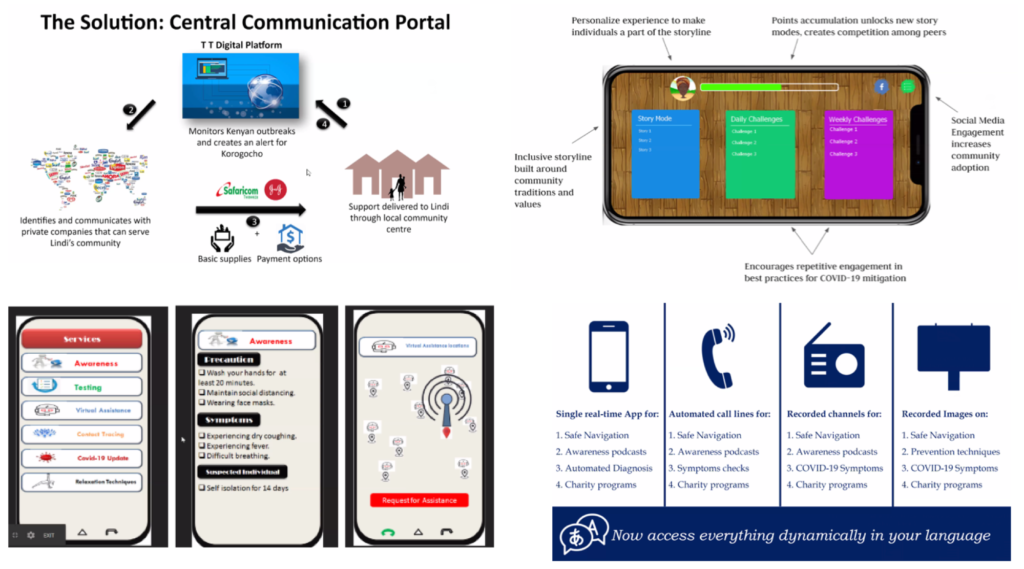MIT is hosting a series of challenges to build solutions for the Covid-19 crisis. The “Africa Takes on Covid-19” took place May 1-3, 2020, and attracted over 1500 participants, with more than half based in 44 countries across Africa. The hackathon kicked off with keynote talks from Agnes Binagwaho, a former public health official in Rwanda; David Sengeh, Sierra Leone’s Minister of Education and Chief Innovation Officer; and John Lascher from Partners in Health. Challenges for “Africa Take on Covid-19” were organized around two main themes divided into a total of ten focus tracks:
- Strengthening the Health System. How can you strengthen the health systems and health facilities that may face staff, supply, and resource shortages? Six tracks focusing on getting patient samples to labs for analysis; strengthening referral systems; empowering the health workforce; readiness for potential surges; sustaining primary care during Covid-19; and energizing healthcare.
- Flattening the Curve. 42% of people in sub-Saharan Africa live on less than $1.90 per day. How can vulnerable populations protect themselves from the effects of Covid-19? Four tracks including preventing community transmission; production of essential supplies; enabling work and supporting livelihoods; and combating misinformation.
MIT GOV/LAB co-sponsored the hackathon and Faculty Director Lily Tsai served as a judge for the track on combating misinformation. More than 200 teams worked over the weekend to produce innovative solutions to challenges across the ten tracks — a rundown of the winners for each track is available online plus more information in the post-hack guide. Some team highlights include a central communication tool that links key stakeholders to improve access and distribution of resources, SMS chatbots for information dissemination, and mobile apps to support self-diagnostic tools and remote healthcare (or “telehealth”).
Other solutions focused on behavioral change, through gamification apps and using social influencers to share key prevention messages, and others took on more physical solutions, like cost-effective mask cleaners and public handwashing stations for common areas and markets.
 Examples of final pitch slides from the track on preventing community spread.
Examples of final pitch slides from the track on preventing community spread.
Here’s a recap by MIT News. We look forward to seeing what ideas take off in the coming weeks and months.
Header image from @freddytn.
